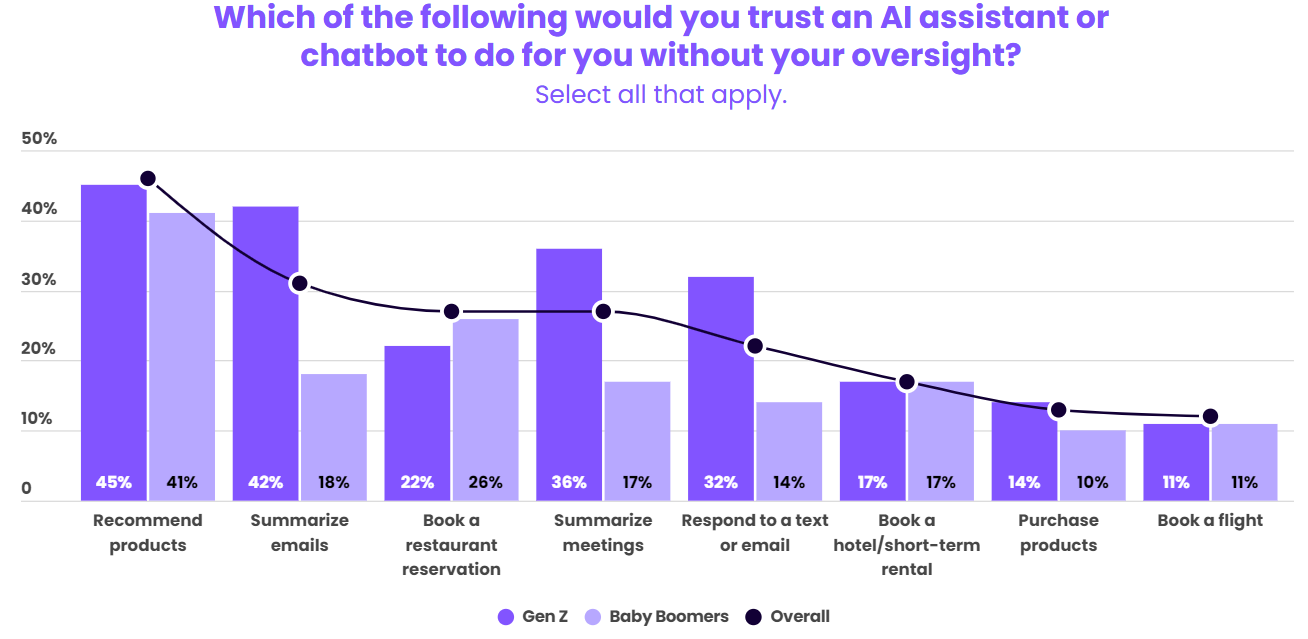I’ve written quite a bit recently about AI’s place in search, from the competitors running up on Google heels to the takeaways that marketers can learn from the result-outputs themselves.
Against the backdrop of the U.S. Justice Department now reportedly considering breaking up Google because of last week’s antitrust ruling that the company created an online search monopoly, a recent Tinuiti report is showing that, among the 1,000 U.S. adults surveyed, almost half (48%) who’ve seen AI summaries in their Google results say it’s made search results better. On the other end, 15% say the results have gotten worse.
“This represents a contrast to the perceptions of many in the search marketing industry who have found examples of inaccurate and sometimes dangerous generative AI answers,” the report says, adding that 47% of those who said “worse” say it’s due to inaccuracies and 43% pointed to a mistrust in AI.
29% said that they had used traditional search engines less because of AI platforms such as ChatGPT and Perplexity. For those who used those AI platforms daily, 62% said they’re using traditional search engines less.
“While the promise of answer engines is that users don’t have to leave the search engines they’re querying to get the information they need, 44% of respondents still prefer to click on a link to a website when they search,” the report says. “Fully 28% prefer for search engines to pull answers featured on search results from a single source/website, identical to the share who prefer when search engines generate answers using AI.”
Tinuiti’s survey also asked about branding issues, particularly what affect the use of AI-generated images, videos, or text in advertisements would have on purchasing those products. A quarter said they’d be less likely to purchase, while 13% said they’d be more likely.
Respondents, the report said, seemed “most concerned that brands using AI to generate marketing assets might be scams, with 37% saying they would feel that way.”
In terms of other AI uses that marketers should take note of, 46% of respondents said they would trust an AI assistant or chatbot to recommend products for them without any oversight, the most trusted task followed by email summarizing (31%), booking restaurant reservations (27%), and meeting summarizing (27%).

(Source: Tinuiti)
“Only 13% would be okay with AI purchasing a product without oversight,” the report says. “While different age groups had similar opinions on those particular tasks, they showed much greater differences for tasks requiring an AI to summarize emails or meetings, with Gen Z and millennials much more likely to trust an AI assistant or chatbot with that responsibility.”
Interestingly, when asked when human intelligence would be surpassed by artificial intelligence, the most common response was that AI already has (18%). That response tied with “I don’t know,” followed by “never” (17%), “in five to 10 years” (15%), and “in one to five years” (14%).
SEE FOR YOURSELF
The Magazine Manager is a web-based CRM solution designed to help digital and print publishers manage sales, production, and marketing in a centralized platform.




